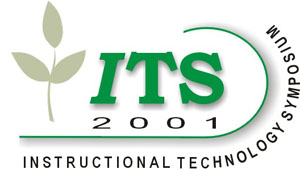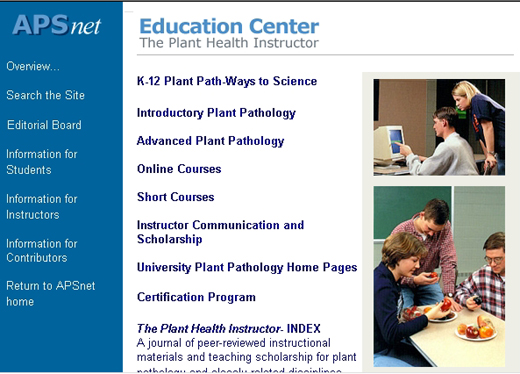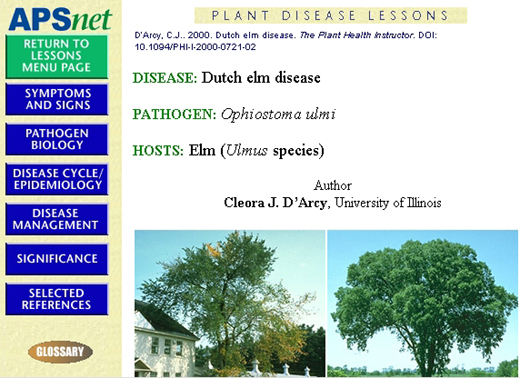Introduction In the spring of 2000, the American Phytopathological Society made a commitment to a new Education Center as part of the APSnet website (http://www.apsnet.org/education/) (Fig 1). This commitment included the establishment of a new online journal, The Plant Health Instructor, for publication of peer-reviewed instructional materials and teaching scholarship. The APSnet Education Center is dedicated to plant pathology education and is designed for both students and instructors. Our audience includes K-12 teachers, advanced high school students, students in higher education, plant health professionals, extension clients, and university faculty in the plant health disciplines, biology, and microbiology. Most of the materials are freely accessible, so instructors may select from a variety of publications to enhance their own unique courses. The Center includes sections for K-12 Teachers, Introductory Plant Pathology, Advanced Plant Pathology, Online Courses, and Instructor Communication and Scholarship. Figure 1. The ASPnet Homepage
The K-12 section
(http://www.apsnet.org/education/k-12plantpathways/top.html) was constructed to assist science and biology teachers in kindergarten through 12th grade interested in developing interactive laboratories and demonstrations that teach the basic principles of science and the scientific method. Each month, the News and Views will highlight important plant diseases and K-12 activities that involve plant pathology. There are descriptions of tested experiments and lessons that demonstrate scientific principles in relation to the microbes that exist in our everyday environment using plant pathology. Each exercise includes background information, grade level recommendations, learning objectives, study questions and answers, and a list of materials and supplies that will be needed. Plant pathologists have volunteered to be mentors and offer a variety of support services. The Bulletin Board allows teachers to communicate with each other and with plant pathologists.
The
Introductory Plant Pathology section (http://www.apsnet.org/education/IntroPlantPath/Top.html)
is for students in higher education and advanced high school students with some biology background but no previous plant pathology. These materials may be appropriate for students in introductory plant pathology, biology, and microbiology courses as well as for continuing education for professionals in the plant health disciplines and extension clients. The section includes illustrated lessons that introduce the symptoms and signs, pathogen biology, disease cycle and epidemiology, management and significance of important plant
diseases (Fig 2). An illustrated glossary (Fig 3), APSnet feature articles, lab exercises and topics in plant pathology are also in development.
Figure 2. A plant disease
lesson
The Advanced Plant Pathology section (http://www.apsnet.org/education/AdvancedPlantPath/Top.html) assumes a basic background in plant pathology and offers lab exercises and topics appropriate for advanced students and continuing education for professionals in the rapidly changing science of plant pathology.
Figure 3. A section of the
glossary
Plant pathologists are invited to be authors of instructional materials for any of the aforementioned sections.
Instructions
(http://www.apsnet.org/education/contribinfo.html) are available, and published materials offer models for formats. Instructors also are invited to contribute to the pedagogy of plant pathology teaching in
the Instructor Communication and Scholarship section (http://www.apsnet.org/education/InstructorCommunication/Top.html). Authors may publish Teaching Notes and full-length, scholarly articles on teaching.
All materials published in the APSnet Education Center receive a citation in the
The Plant Health Instructor that includes a digital object identifier (DOI) which assure perpetual, archival access to publications. APS offers authors access to its extensive image collection in the development of materials and some technical support. APS welcomes your use of the growing collection of instructional materials in your educational programs and encourages you to make contributions to this Education Center.
End
|



